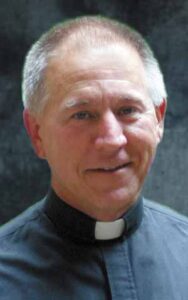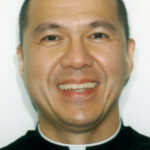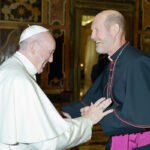By Father Bud Grant
SAU Theological Perspective

My typical reading was interrupted last week with the appearance of Laudate Deum (“Praise God”), the Apostolic Exhortation of Pope Francis. It was issued, appropriately, on the Feast of St. Francis of Assisi, Oct. 4. In it, as in his 2015 encyclical Laudato Si’, the pope addresses the ever more dangerous threats to the world and to humanity due to environmental crises. It reads with a sense of real urgency and concern. However, Laudate Deum is not a sequel, as some have dubbed it. It is, rather, something of an addendum. In it he reiterates his deep concern for our common future, he responds to some specific criticisms and tightens his focus on climate change which, he states, is quite real (LD 6), it is “anthropic,” meaning it is not natural but human caused (LD 11), and it is frighteningly advanced (LD 12, 15, 17).
Here are a few points from Laudate Deum:
Part 1. Pope Francis responds to the tedious arguments that climate change is not real or that it is natural or that it the fault of the over-populated poor countries or that we can’t afford to lose jobs by converting to clean energy. He points out that these spurious arguments falsely represent the facts. He states, simply and gently, “some effects of the climate crisis are already irreversible” and that “we are approaching a critical point … there is no turning back.” (LD 15, 17).
Part 2. Here he counters the “technological paradigm” that makes the earth nothing more than a warehouse of resources, a “mere setting” for us. Whereas, really “we are, part of nature” (LD 25). “Human life, intelligence and freedom are elements of the nature that enriches our planet, part of its internal workings and its equilibrium” (LD 26).
Part 3. His call for creation of an international governing body empowered to implement necessary environmental legislation is repeated almost verbatim from Laudato Si’ (LS 175). I’ve always wondered why the press doesn’t pick up on this since, of all the erroneous claims made of Pope Francis, this one is true and must be very controversial.
Part 4. This section demonstrates how closely the pope has been following the work of existing international institutions and may explain why he believes we need a better system. Our track record for making and then sticking to our international commitments to save the earth is, at best, mixed.
Part 5. Pope Francis provides what constitutes a brief pre-game motivational address in advance of the UN’s COP 28 (Climate Change Conference), which begins Nov. 30 in Dubai. One of the most amazing attributes of Pope Francis is his ability to speak boldly, clearly and directly without sounding alarmist or extremist. He states, “To say that there is nothing to hope for would be suicidal” (LD 53) and yet “we risk remaining trapped in the mindset of pasting and papering over cracks, while beneath the surface there is a continuing deterioration to which we continue to contribute” (LD 57).
Part 6. Here, he explains how he can be prophetically urgent while maintaining spiritual equilibrium. His biblical and Catholic faith both sustain and drive him. He encourages individuals to change our consumptive habits as a matter of religious duty without expecting that it will make much of a difference. “The most effective solutions will not come from individual efforts alone, but above all from major political decisions on the national and international level (LD 69). In the end, he offers us all an invitation: “I ask everyone to accompany this pilgrimage of reconciliation with the world that is our home and to help make it more beautiful, because that commitment has to do with our personal dignity and highest values” (LD 68).
This too-brief letter doesn’t replace Laudato Si’, nor is it as elegant or eloquent. I wish he would have expanded on some ideas (like Artificial Intelligence, LD 21). Still, its purpose is to jar us from any complacency that we may have succumbed to in the eight years since he awakened us to our Christian and Catholic responsibility for God’s creation. I must admit, I needed that myself. One sentence still echoes in my head: “In conscience, and with an eye to the children who will pay for the harm done by their actions, the question of meaning inevitably arises: ‘What is the meaning of my life? What is the meaning of my time on this earth? And what is the ultimate meaning of all my work and effort?’”
(Father Bud Grant is a professor of theology at St. Ambrose University in Davenport.)











